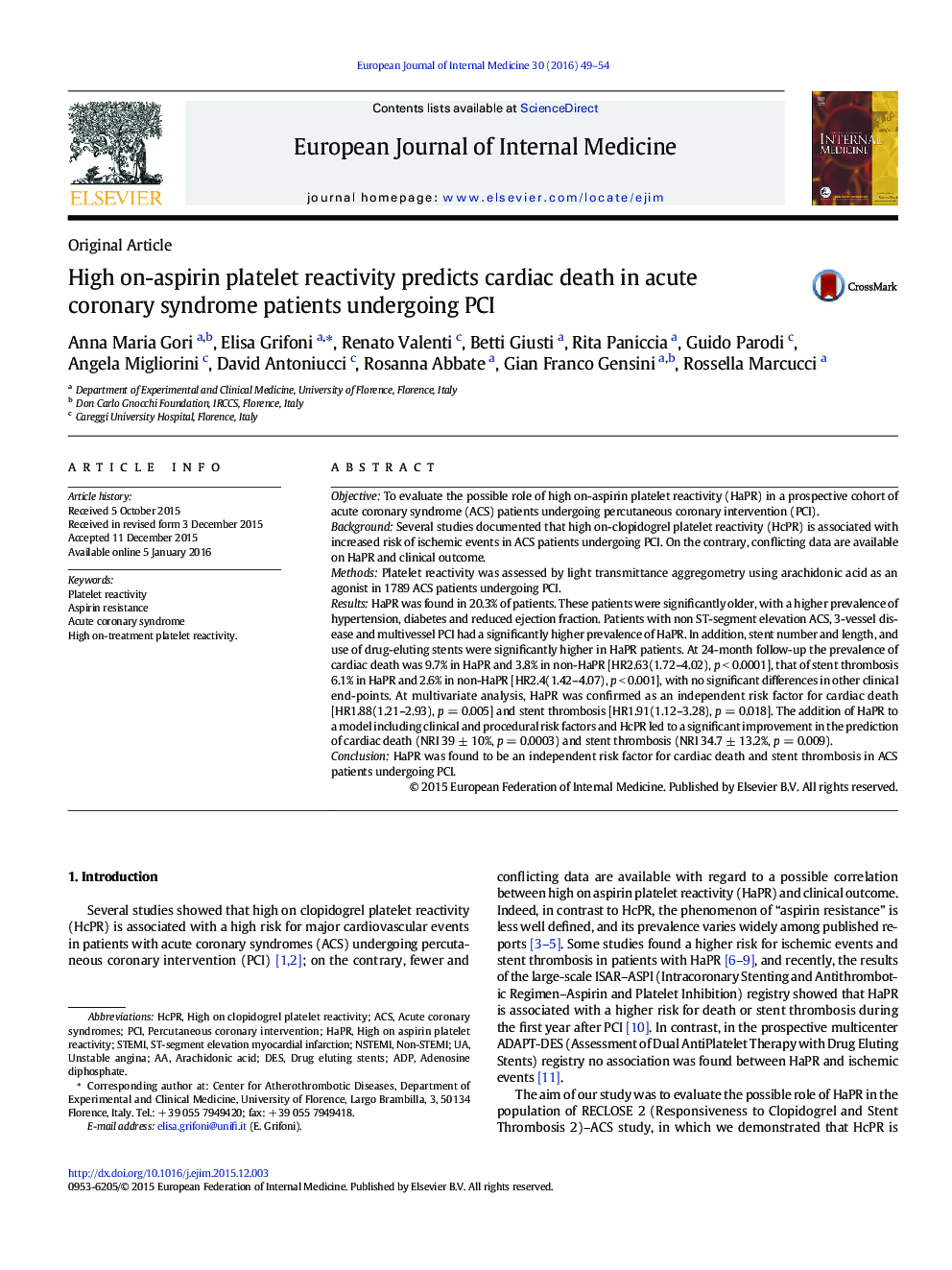| کد مقاله | کد نشریه | سال انتشار | مقاله انگلیسی | نسخه تمام متن |
|---|---|---|---|---|
| 3465903 | 1596536 | 2016 | 6 صفحه PDF | دانلود رایگان |
• HAPR is associated with cardiac death and stent thrombosis in ACS patients undergoing PCI.
• This association persists after adjustment for cardiovascular and procedural risk factors.
• These results are hypothesis generating for further studies of tailored antiplatelet therapy.
ObjectiveTo evaluate the possible role of high on-aspirin platelet reactivity (HaPR) in a prospective cohort of acute coronary syndrome (ACS) patients undergoing percutaneous coronary intervention (PCI).BackgroundSeveral studies documented that high on-clopidogrel platelet reactivity (HcPR) is associated with increased risk of ischemic events in ACS patients undergoing PCI. On the contrary, conflicting data are available on HaPR and clinical outcome.MethodsPlatelet reactivity was assessed by light transmittance aggregometry using arachidonic acid as an agonist in 1789 ACS patients undergoing PCI.ResultsHaPR was found in 20.3% of patients. These patients were significantly older, with a higher prevalence of hypertension, diabetes and reduced ejection fraction. Patients with non ST-segment elevation ACS, 3-vessel disease and multivessel PCI had a significantly higher prevalence of HaPR. In addition, stent number and length, and use of drug-eluting stents were significantly higher in HaPR patients. At 24-month follow-up the prevalence of cardiac death was 9.7% in HaPR and 3.8% in non-HaPR [HR2.63(1.72–4.02), p < 0.0001], that of stent thrombosis 6.1% in HaPR and 2.6% in non-HaPR [HR2.4(1.42–4.07), p < 0.001], with no significant differences in other clinical end-points. At multivariate analysis, HaPR was confirmed as an independent risk factor for cardiac death [HR1.88(1.21–2.93), p = 0.005] and stent thrombosis [HR1.91(1.12–3.28), p = 0.018]. The addition of HaPR to a model including clinical and procedural risk factors and HcPR led to a significant improvement in the prediction of cardiac death (NRI 39 ± 10%, p = 0.0003) and stent thrombosis (NRI 34.7 ± 13.2%, p = 0.009).ConclusionHaPR was found to be an independent risk factor for cardiac death and stent thrombosis in ACS patients undergoing PCI.
Journal: European Journal of Internal Medicine - Volume 30, May 2016, Pages 49–54
